Are orange peels good for plants? Learn how to use this food waste effectively in your yard
Don't be hasty to throw away your orange peel – it can bring multiple benefits to your plants

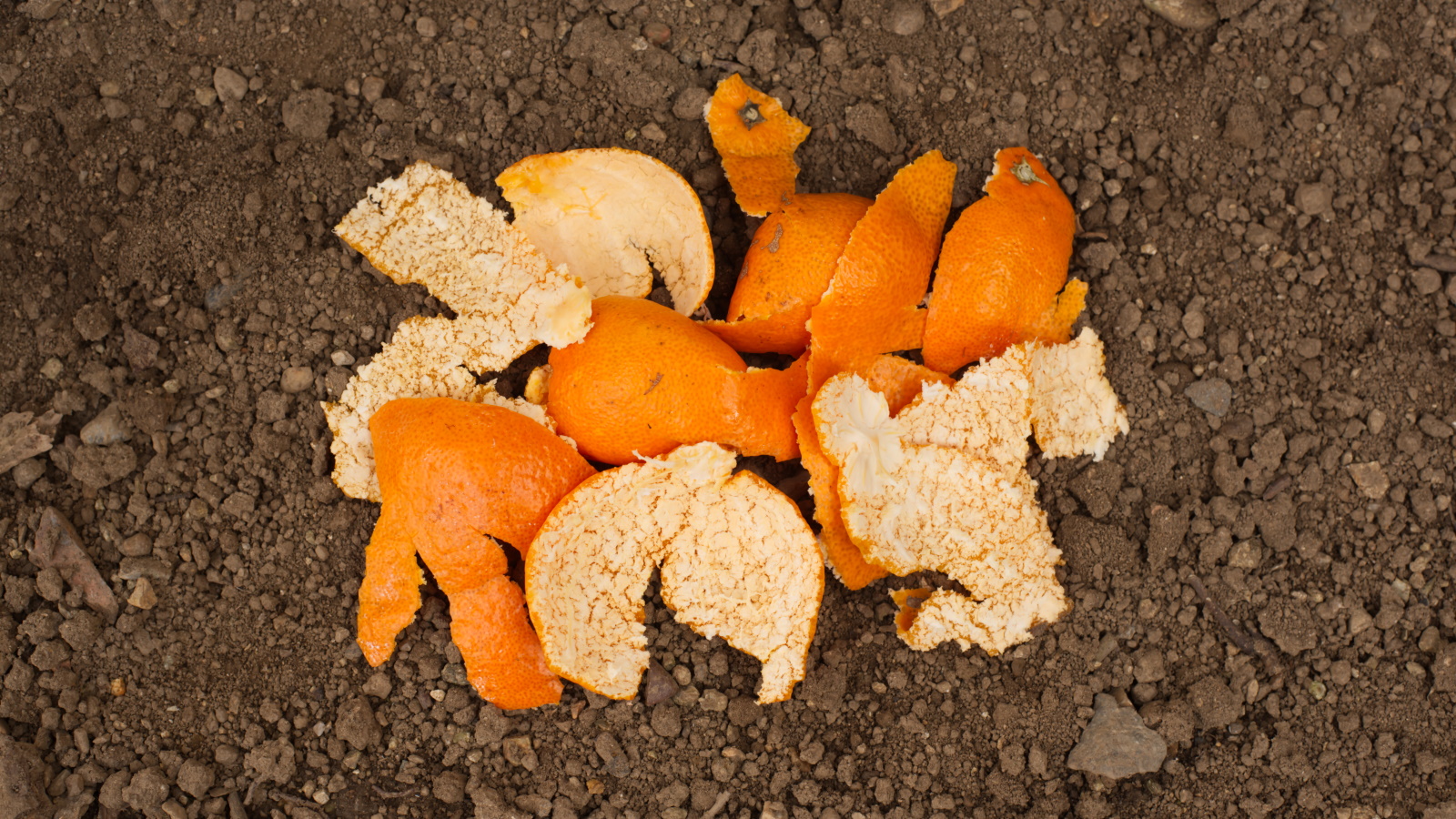
Design expertise in your inbox – from inspiring decorating ideas and beautiful celebrity homes to practical gardening advice and shopping round-ups.
You are now subscribed
Your newsletter sign-up was successful
Want to add more newsletters?

Twice a week
Homes&Gardens
The ultimate interior design resource from the world's leading experts - discover inspiring decorating ideas, color scheming know-how, garden inspiration and shopping expertise.

Once a week
In The Loop from Next In Design
Members of the Next in Design Circle will receive In the Loop, our weekly email filled with trade news, names to know and spotlight moments. Together we’re building a brighter design future.

Twice a week
Cucina
Whether you’re passionate about hosting exquisite dinners, experimenting with culinary trends, or perfecting your kitchen's design with timeless elegance and innovative functionality, this newsletter is here to inspire
Using kitchen waste in the garden has long been successful for gardeners wanting to be more green, but sometimes it can be hard to judge just how much your food scraps are benefitting your plants.
A few ingredients instantly come to mind when you're planning to make your own compost and it's no surprise that using kitchen waste in the garden, like orange peels, is a popular choice. These citrus fruit peels have a lot to offer plants, both in the form of nutrient and protection.
We've spoken to experts to find out just how good orange peels are for plants and how to go about using them in the backyard.
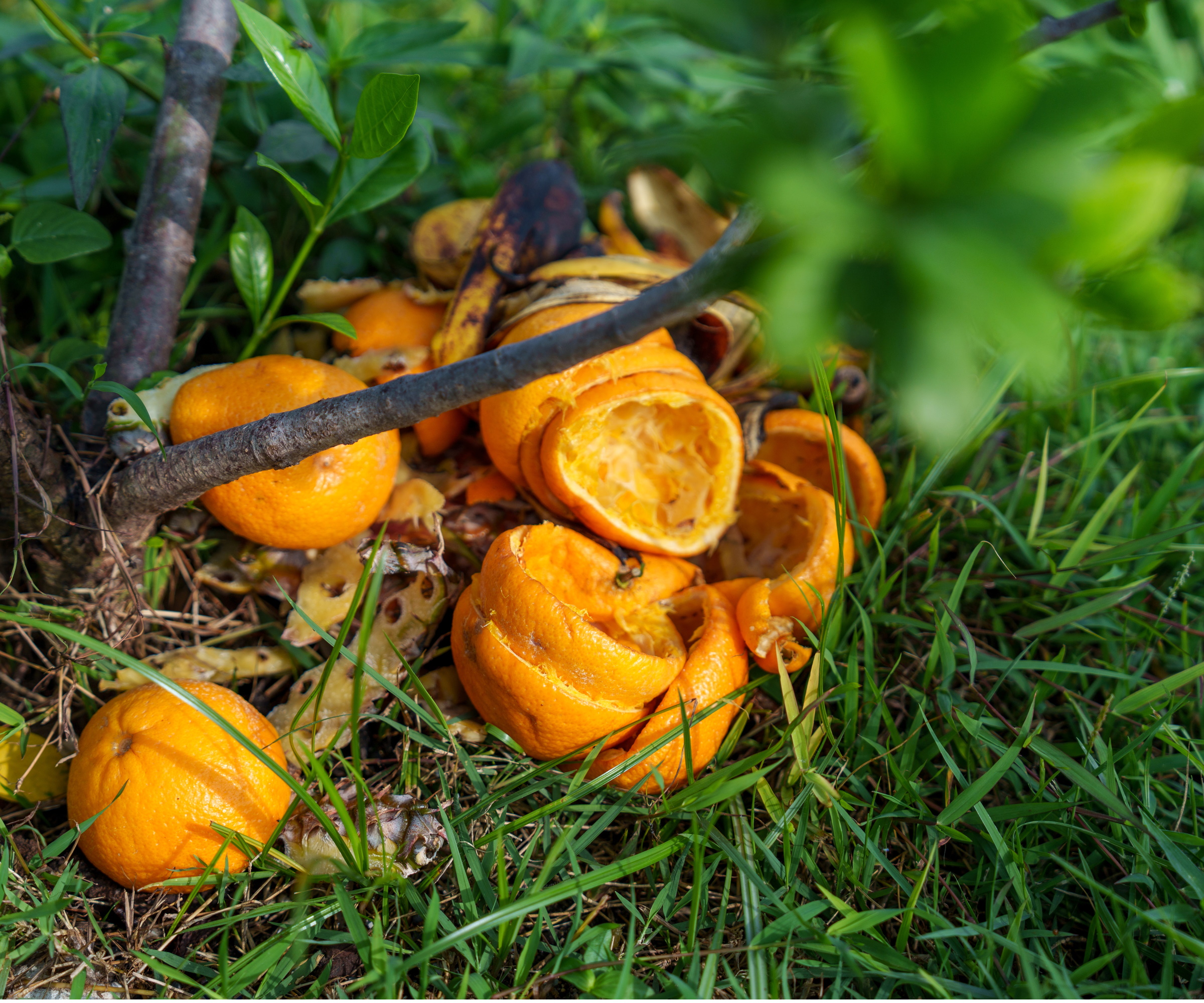
Are orange peels good for plants?
Due to the acidic nature of orange peels, you need to think carefully about how to use them in the garden. Nevertheless, experts have told us just how beneficial this food waste can be for plant growth.
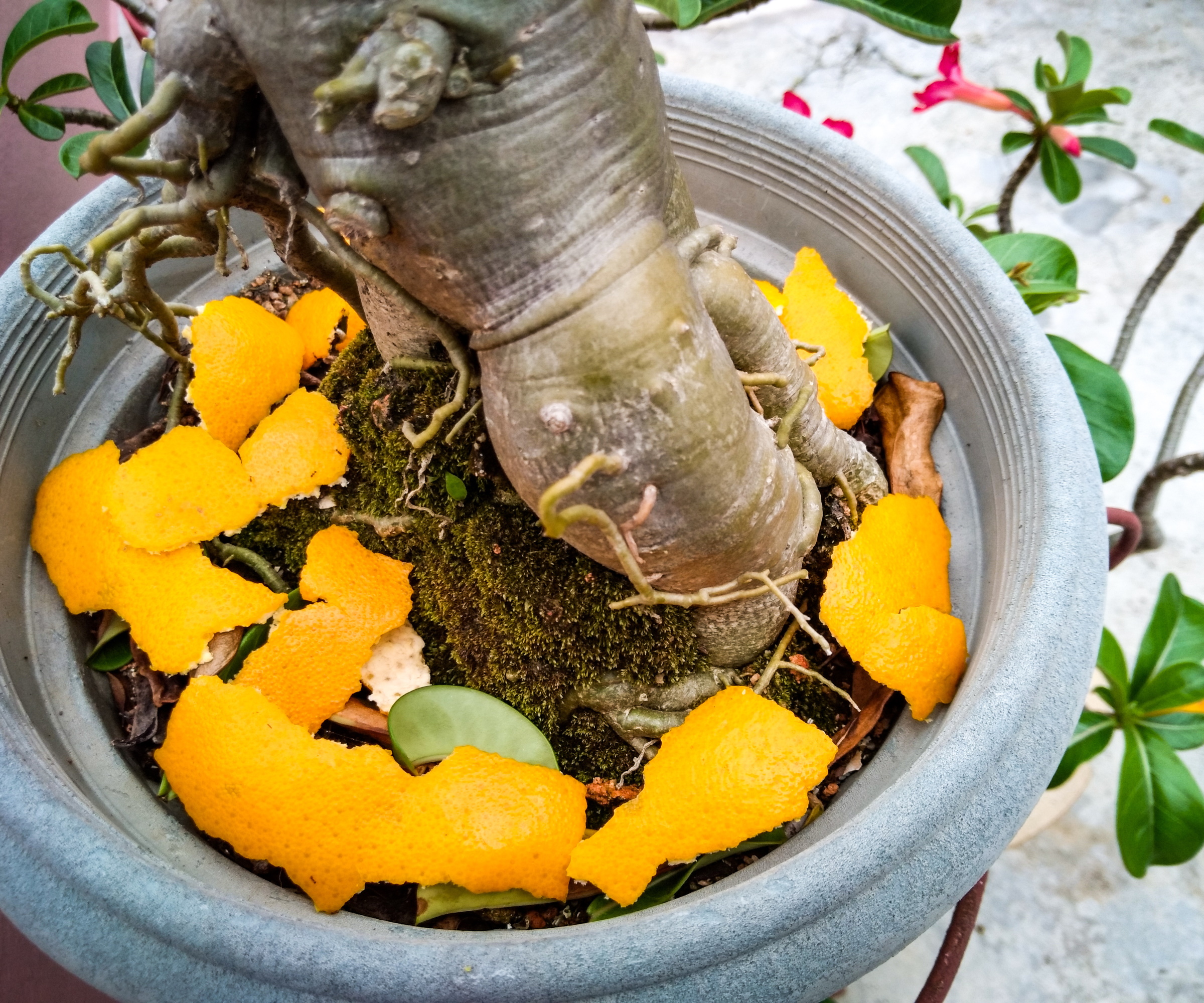
'Citrus peels like orange and lemon contain phosphorus and potassium which is good for plants,' says Julie Bawden Davis, plant expert at Healthy Houseplants.
You might notice plant fertilizer numbers outline 'NPK' ratios, which refer to the amount of nitrogen, phosphorus, and potassium in the plant food. This is because these three nutrients are essential for plant growth. The phosphorus in citrus peels can therefore help plants with cell division and new growth, while potassium increases the drought tolerance of plants.
However, it's worth noting that you can't rely on orange peels alone to do all the hard work and it's much more beneficial to use a fertilizer, like this all-purpose fertilizer from Garden Goods Direct or this indoor plant food from Perfect Plants, alongside the peels. You can also opt for a range of unusual compost ingredients to optimize the nutrients your plants receive.
Design expertise in your inbox – from inspiring decorating ideas and beautiful celebrity homes to practical gardening advice and shopping round-ups.
Experienced gardeners will also be aware that orange peel deters pests.
'The scent of the orange peel is useful as a natural way to deter pests from your plants. In particular slugs, aphids, ants, whiteflies, and fruit flies hate the smell of citrus,' says Sally Allsop, founder of All That Grows.

Julie Bawden-Davis is a garden author and University of California Certified Master Gardener, who has written several gardening books, including Indoor Gardening The Organic Way. In addition to running HealthyHouseplants.com, she shares indoor gardening advice on her YouTube channel @HealthyHouseplants.

Sally is an avid gardener and founder of the online gardening site All That Grows. She has many years of hands-on gardening experience and a thirst of knowledge about plants and their needs. Sally is passionate about sharing her love for gardening and sharing tips with other gardeners.
How to use orange peels in your yard
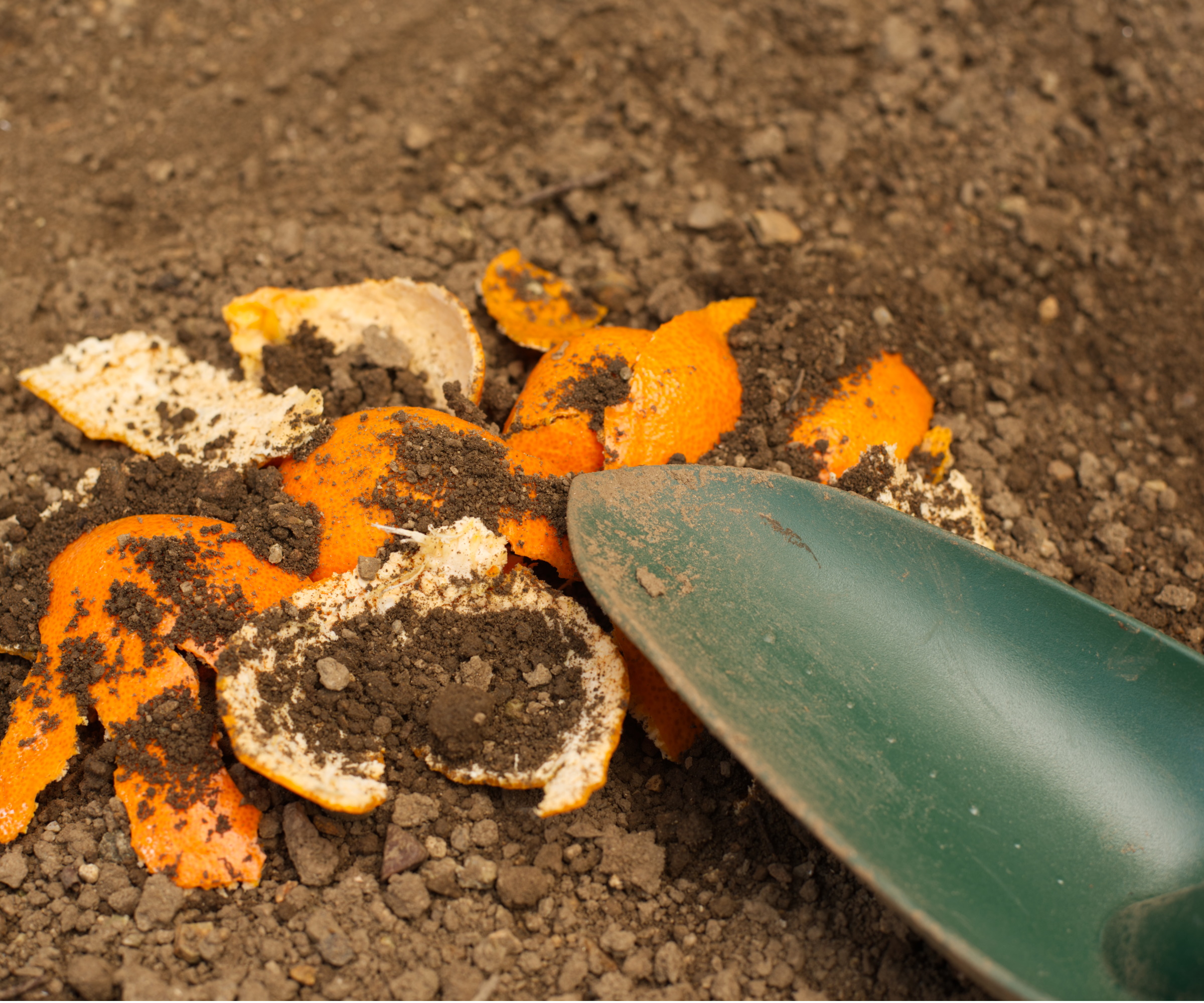
There are a couple of different ways to use orange peels in your yard, depending on what you want to achieve.
'Citrus should never be used directly on plants because of the high acidic content unless it's made into a spray to deter pests,' says Sarah Warner, organic growing expert and farm associate at Case Western Reserve University Farm.
If you have plants that thrive best in alkaline soil, you may want to be cautious about adding citrus peels to the soil. Although, this is a good way to make soil more acidic if you grow acidic-loving plants.
To make the most of the nutrients that orange peels can provide to your plants, it's best to incorporate it into your compost, just as you would when using banana peels for plants and eggs in the garden, because it can take some time for fruit peels to decompose.
'It is advised that a soil test is completed before adding nutrients to plants to limit nutrient deficiencies and potential harm to the soil, thus, the plant,' notes Sarah. You can find soil test kits online, like this soil pH test kit from Amazon.
If your aim is rather to deter pests, you can place some orange peels around the base of your plant.
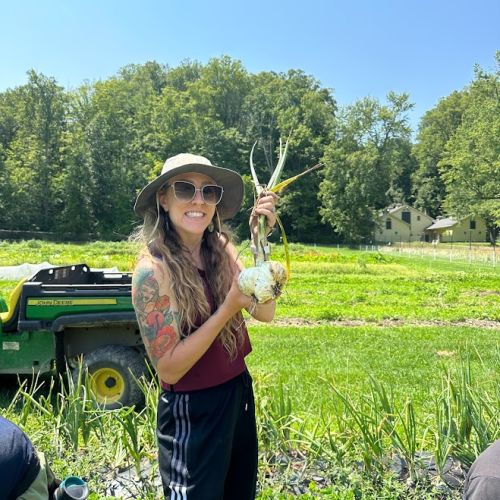
Sarah Warner is a farm associate with the farm food program at the University farm. She has five years of experience growing organic food in Northeast Ohio. She is a Lorain County Community College graduate with an Associates Degree in Sustainable Agriculture and is also certified in Permaculture Design.
FAQs
Which plants like orange peels?
Due to their acidic nature, citrus peels, including oranges, are most beneficial to acidic soil-loving plants. This includes hydrangeas, azaleas, camellias and more. The best thing to do before using orange peels on your plants is research their pH preference.
Orange peels are often used by gardeners to boost nutrients for plants and deter pests, but it's important to be aware of their acidic nature and the time they take to fully decompose. If you're looking to make compost more quickly, try your hand at hot composting and turn your kitchen waste into rich plant food in just a few weeks.

Tenielle is a Gardens Content Editor at Homes & Gardens. She holds a qualification in MA Magazine Journalism and has over six years of journalistic experience. Before coming to Homes & Gardens, Tenielle was in the editorial department at the Royal Horticultural Society and worked on The Garden magazine. As our in-house houseplant expert, Tenielle writes on a range of solutions to houseplant problems, as well as other 'how to' guides, inspiring garden projects, and the latest gardening news. When she isn't writing, Tenielle can be found propagating her ever-growing collection of indoor plants, helping others overcome common houseplant pests and diseases, volunteering at a local gardening club, and attending gardening workshops, like a composting masterclass.